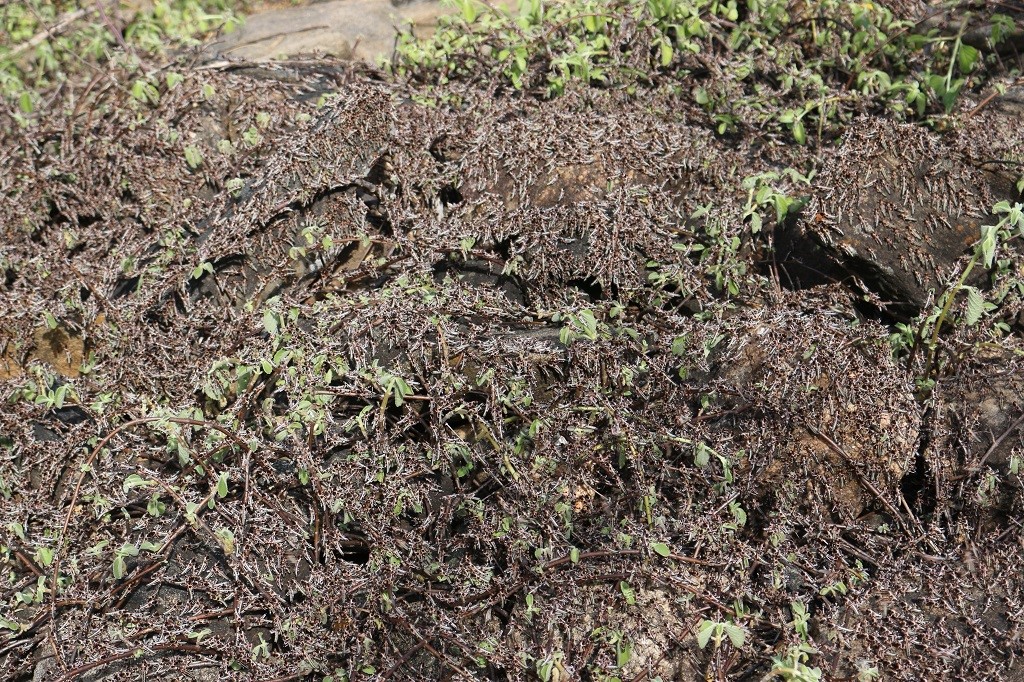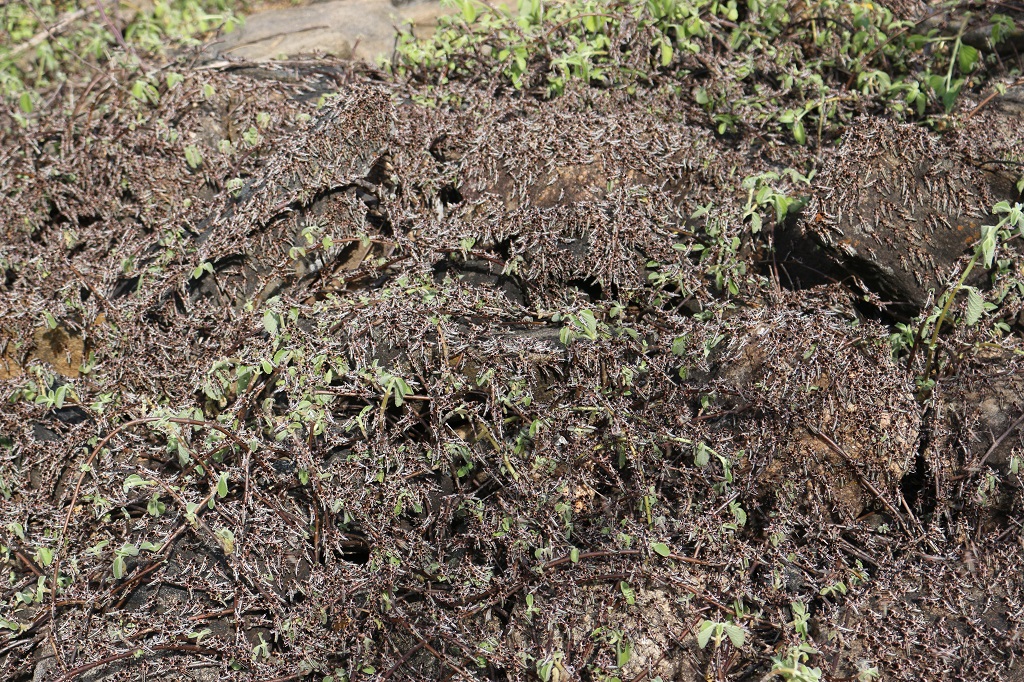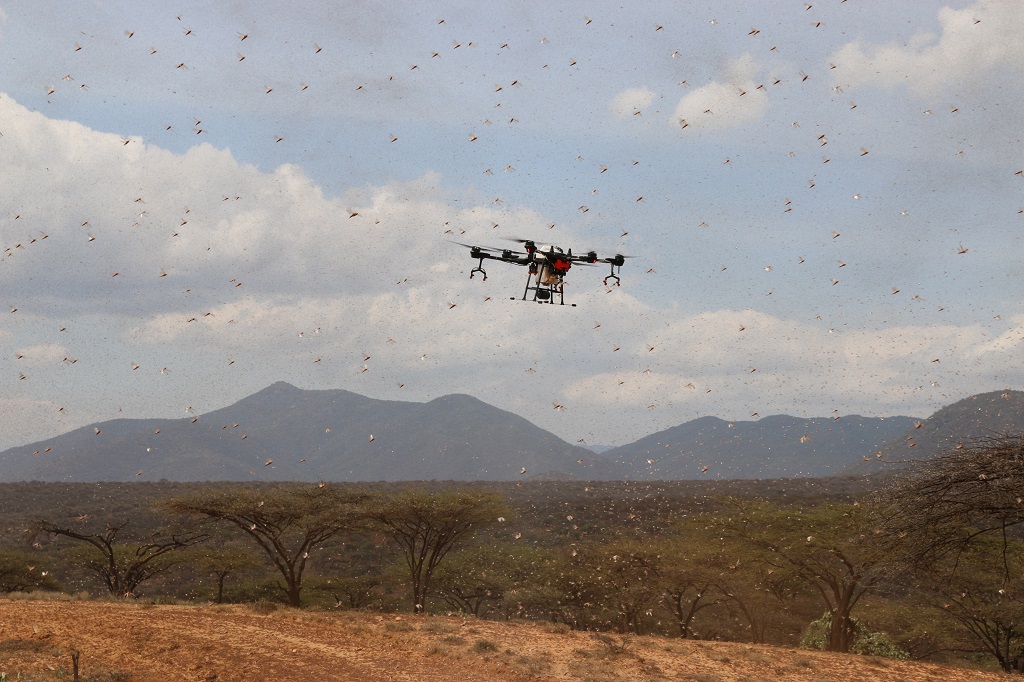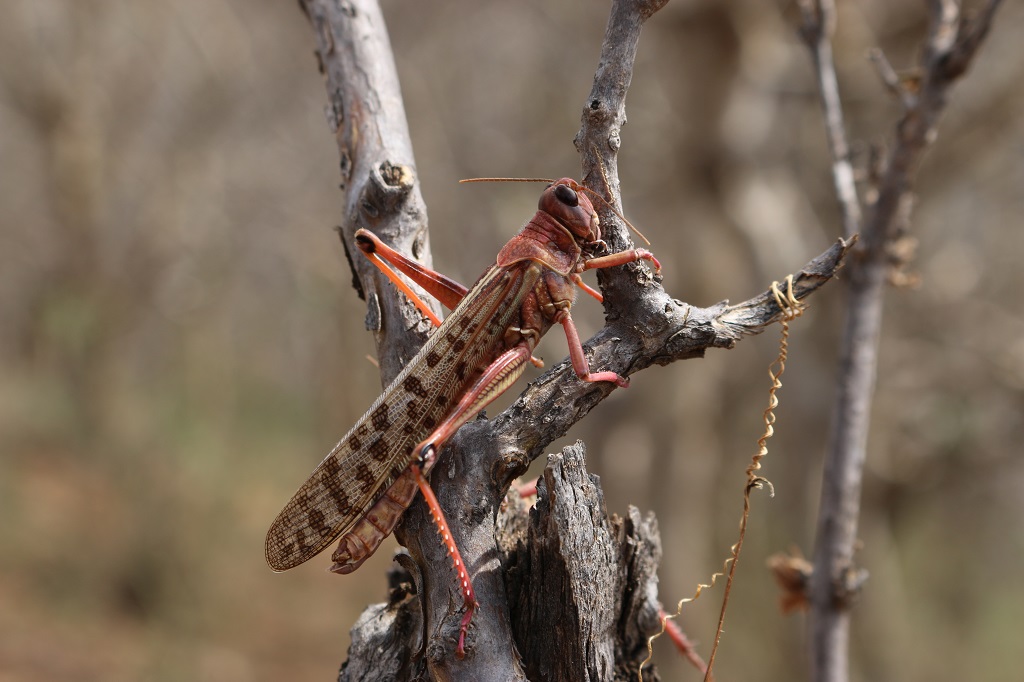Combating desert locusts: a CABI interview
The destructive force of desert locusts and grasshoppers can devastate crops across many regions of Africa and Asia, with swarms of locusts capable of causing widespread damage to crops, severely damaging livelihoods and increasing the risk of acute food instability. CABI has been using its extensive expertise in managing invasive insects, through early action and…
CABI research on desert locusts helps safeguard the food crops of millions
In 2019-2020, according to the Food and Agriculture Organization (FAO), around 20 million people in Ethiopia, Kenya, Somalia, South Sudan, Tanzania and Uganda faced acute food insecurity due to swarms of desert locust (Schistocerca gregaria). In Kenya, the outbreak represented the worst locust crisis in 70 years; by its peak, the country was tackling over…
A plague during a pandemic: how to increase resilience against the desert locust outbreak
On 12 October, as part of a virtual side event for the World Food Prize’s annual Borlaug Dialogue, CABI hosted a panel session on A plague during a pandemic: how to increase resilience against the desert locust outbreak. The webinar aimed to communicate the urgent need for a comprehensive and coordinated response to this year’s…





